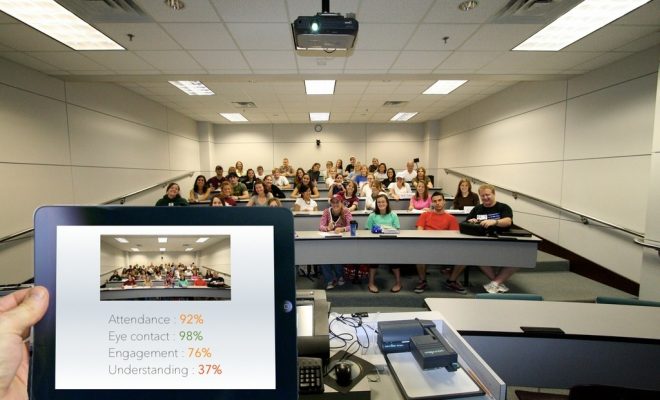This science teacher says trust and hands-on lessons make all the difference for his middle-schoolers

Originally posted on Chalkbeat by Shaina Cavazos
Name: Ronak Shah
School: KIPP Indy College Prep Middle
Current subject/grade: seventh grade science
How did you get into teaching?
Becoming a teacher was always something I was curious about growing up. For some reason, I thought a lot about how my teachers were planning and executing their lessons, probably because I was a teacher’s pet. I was especially interested in how they were adapting to the rapid demographic changes in my school district through the messy process of desegregation. However, I had a few friends talk me out of joining the school of education at my university — they told me it wasn’t preparing them in the way that they’d hoped it would, and they recommended I find another way into the classroom later on. My interests shifted to incarceration and the myriad injustices our justice system is responsible for, especially for young men of color. I grew passionate about restorative justice and reconciliation. But by the time I neared graduation, I’d come full circle, realizing the tragic interweaving of our schools and prisons. I knew that I wanted to be in the classroom, and especially a classroom that would work to destroy the school-to-prison pipeline.
How do you plan your lessons?
I find my planning works a bit like a giant pinboard. There are a lot of ideas that I want students to understand, and there are threads between them that connect and intersect in a brilliant geometry. If I pick up a fossil on a hike through the woods, it is connected to the rock cycle, the water cycle, our geological and biological and meteorological history, our plants and animals and the ways they’ve interacted and evolved, in so many deep and profound ways. I want my students to be able to see that interconnected tapestry that is our scientific understanding of our universe, and the stories woven into it. I start with that, and then start breaking that vision down into discrete steps of knowledge and understanding, which I then order into a calendar for the year.
After that, it’s a mixture of taking and making. Plenty of experienced teachers developed brilliant, interactive, hands-on ways of communicating complex scientific lore to students, and many are gracious enough to share their wisdom. Planning is about curating these experiences and adding your own, so student experience of a theory or idea is as rich and multi-modal as possible.
What’s different about your classroom?
My hope is for my classroom to feel as much as possible like a rigorous trip to a science museum. I try to average about three labs a week, and give my students a lot of freedom to work in groups and solve problems independently. A lot of educators, especially in middle school, get nervous about giving students too much freedom for fear of behavior issues or wasted time. I tend to take a “trust first, troubleshoot afterwards” approach, as I feel like our students deserve the same interactive, engaging education that students in more affluent schools or in gifted-and-talented magnets regularly receive. It’s not easy, but I usually find that when freedom and trust are combined with clear and high expectations, students rise to the challenge with pride, and their understanding of content becomes both granular and tactile. Plus, the work of teaching would never be sustainable if I wasn’t excited about how I’m presenting content every day. The look of curiosity, inspiration, eureka on a student’s face when they suddenly grasp a concept after a hands-on activity is something I will never get tired of. Teaching should be renewing, fun, creative, thrilling, every single day. Planning, joy, and trust make that possible.
How do you respond when a student doesn’t understand something?
Like a lot of other educators, I usually start by running diagnostics. Teachers usually approach these problems like a nurse taking vital signs. We probe with questions to find out what the student understands, and where there are gaps. We field a few problems to test the knowledge, and then we start looking the other factors — active participation in class, study and practice at home, differences in learning style, external stressors that the student is grappling with. Once we’ve diagnosed where the breakdown is, we pick an intervention to address it. If a student isn’t able to internalize difficult vocabulary words, I suggest a song or a rap that would help them learn the words differently. If the student is struggling with scientific concepts, I work with them on a demo or a mini-lab to illustrate what’s happening. The support always has to be differentiated to the cause.
What’s the best advice you ever received?
I taught for a year next to a teacher I’ll never forget. There are so many things that our classrooms will never have in common, but there’s one thing she told me that has always stuck with me: “You know how I get the kids to stop bullying each other, Shah? I get them to unite — against me.” I think too often, as middle school teachers, we want our students to either be children or adults, and not the teenagers they really are. We either want them to be purely dependent on adults for affirmation, or completely independent. The reality is that our middle school students are looking to their peers to help them organize their identities, and that doesn’t have to be a bad thing, even though it’s confusing and challenging and outside of our control. Rather than encouraging my students to ignore peer influences, I try to encourage students to embrace them, but to be the kind of influence that creates unity, strength, and conviction, to be a team that is committed to helping each other realize their potential. I truly believe this approach builds a more nimble, adaptive, socially intelligent young person, capable of navigating the morass of hormones and insecurities that is middle school.
Chalkbeat is a nonprofit news site covering educational change in public schools.






